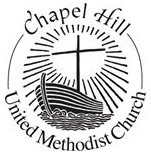In our final installment considering the phenomenon of church decline, church consultant Thom Rainer posits that a final major factor of church decline is that churches are slow to respond to change as change accelerates all around us. Rainer suggests that while churches use to lag behind the technological and cultural changes by five to ten years, they now lag behind as many as 20 to 30 years the changes occurring around them making churches increasingly irrelevant to those outside the church regarding issues of style, methodology, and awareness.
This factor is related to those that have been mentioned before. In a time when Cultural Christianity has gone by the wayside and in which we are losing the Builder Generation, we have fewer church members who are used to the way we have always done things and embrace them. As people have migrated more and more, we have fewer people in our neighborhoods who identify with the local culture within which our local church culture was formed. When someone visits or connects with a local church, they are much quicker to leave if the culture in place proves to be irrelevant to them and their lives.
Rainer suggests the number one thing members of a local church must do to address this factor in church decline is to let go of their personal preferences. He asserts that fights over the styles of music, worship times, modes of dress, etc., so the church can adapt to new cultural eras and reach people who live in the current era. One way churches can walk this road is to meet with leaders of churches who enacted change without forgetting they were as baptized disciples of Jesus Christ.
This is difficult, however, because any institution, religious or non, big or small, local church or denominational, becomes more rigid with age. Like humans who lose flexibility if they do not continually stretch their muscles and joints as they age, adapting can be hard for institutions that have not needed to adapt or chosen not to be adaptive over the years. The result is great pain when strenuous change is attempted, like when a ligament tears performing a simple task because muscles and joints had tightened up over the years.
We can see an example of adaptability in a company like Netflix. Netflix looked at the landscape of video rentals, a la Blockbuster, and saw a new way to meet people’s video rental wants: by mail at a cheaper price. For a monthly price that beat equivalent movie rentals at a local store, Netflix would send you a certain number of DVDs or Blu-rays to your mailbox. Their business model completely altered how people watched home movies. Just a few years later, Netflix recognized that the internet was rapidly changing how people consumed video. They responded by creating an online video streaming video service providing a huge collection of previously released movies and television shows for their customers to watch with ease. A couple of years later, they recognized the desire people had to watch new original movies and television shows such as they had access to on cable. They began investing in original shows and movies and quickly became the landscape-altering one stop shop for the public’s viewing wants. Their flexibility allowed them to adapt on the fly and brought success.
This we know: change is not easy. We have great memories that we value greatly and attribute to the ways we have worshipped and practiced our faith together. Yet we are in a new culture where it is much harder to connect people with faith and a church. If, though, we are willing to stretch our institutional muscles and joints, we can become relevant to people that reside in the culture around us and become a fruitful, growing church once again. Let’s discern together what this looks like at Chapel Hill United Methodist Church.
Grace and peace,
Rev. J.D. Allen

